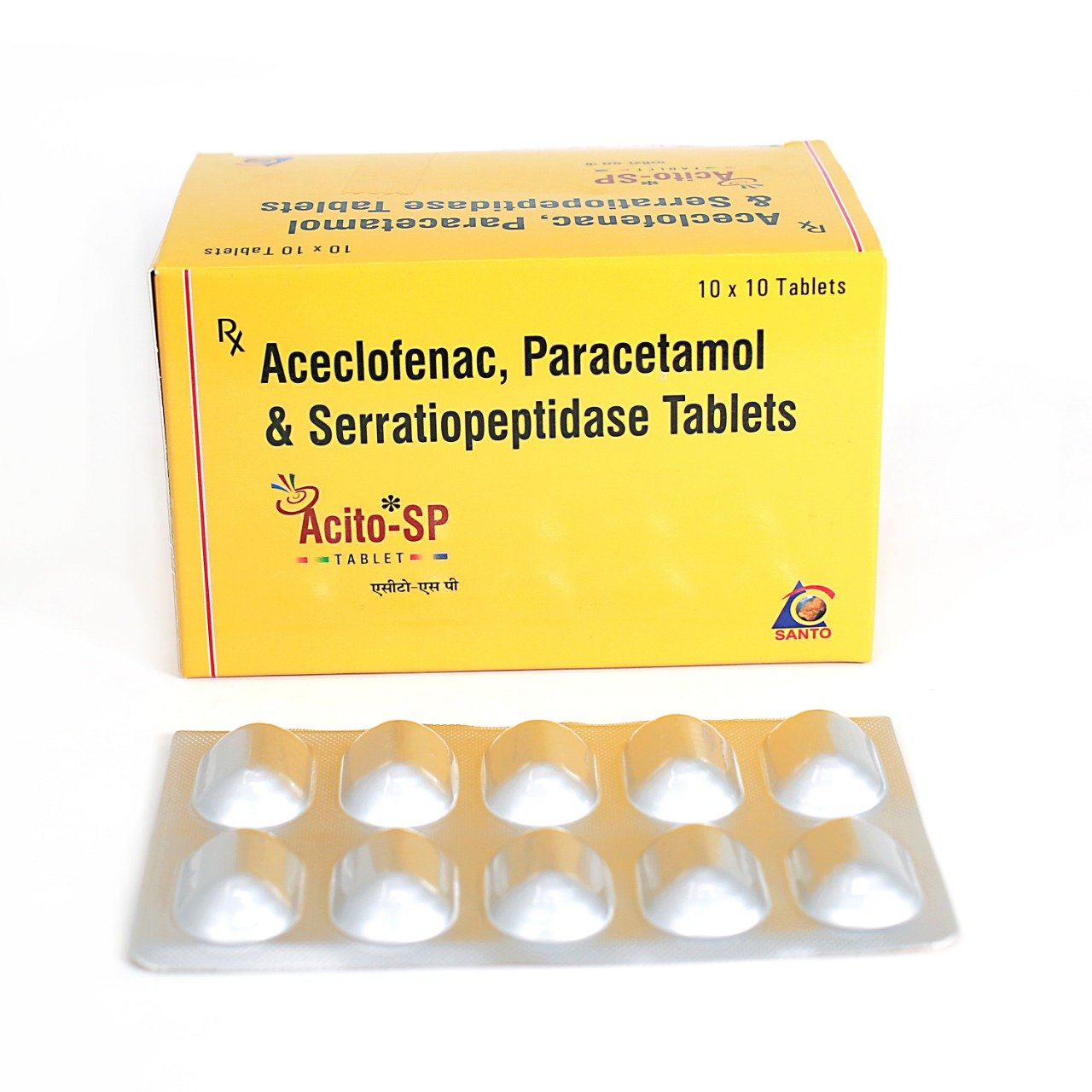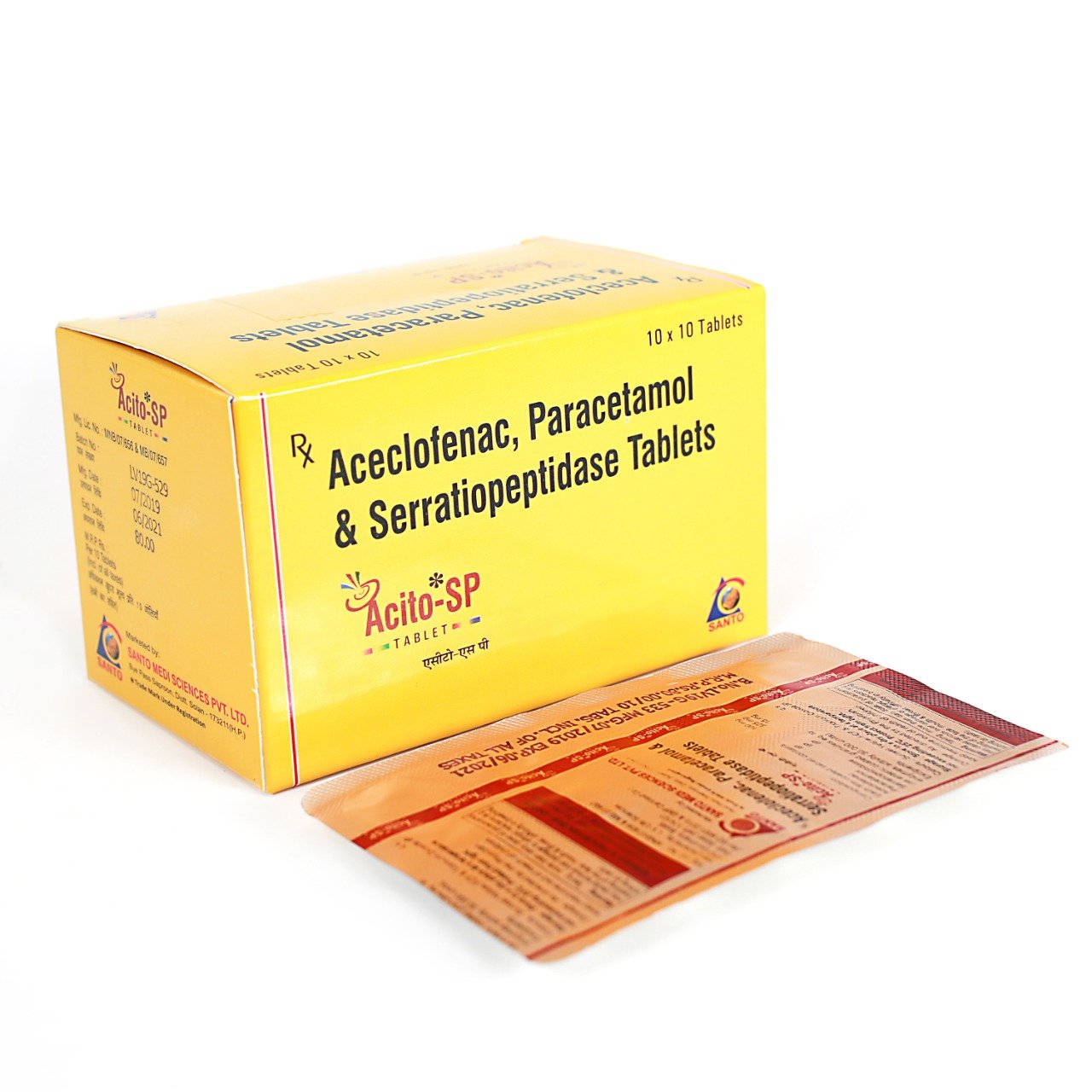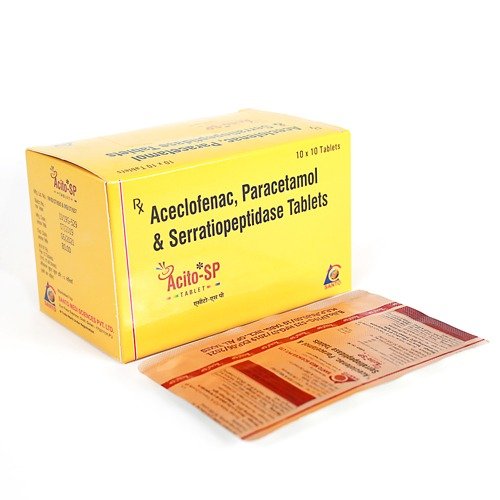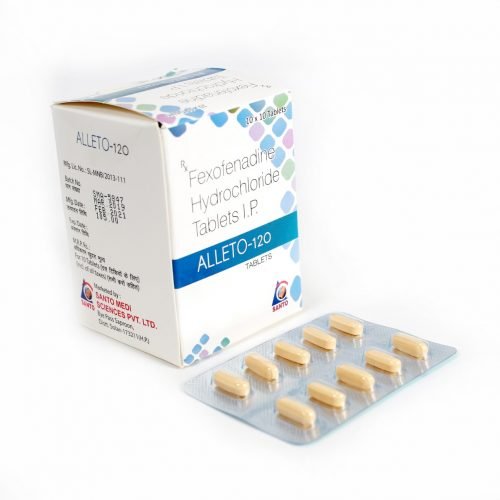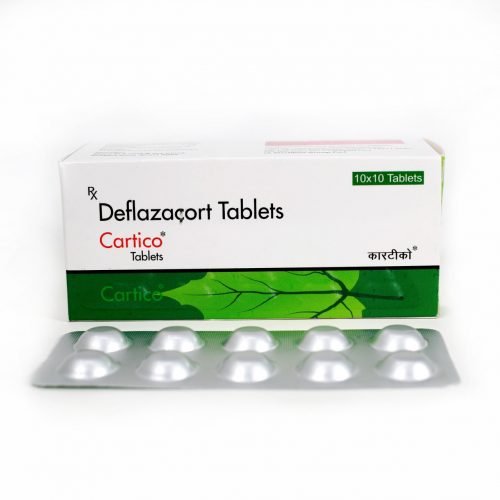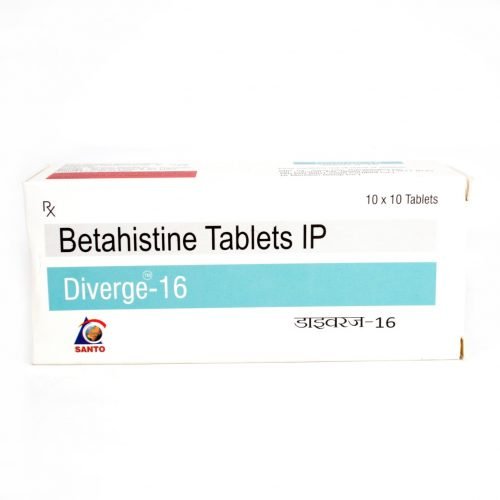- 01792-220191, 09839141955, 06390845955
- SCO No. 2 & 3, Block-B;Office No.-249A; 2nd Floor, Motia Plaza Baddi-173205; Distt. Solan (H.P.)

ACITO-P
September 17, 2019
ACITO-Th4
September 17, 2019ACITO-SP
| Brad Name | Acito-SP |
| Composition | Aceclofenac 100 mg + Paracetamol 325 mg+ Serratiopeptidase 15mg Tablets |
Aceclofenac 100 mg + paracetamol 325 mg + serratiopeptidase 15 mg
Aceclofenac
Aceclofenac is a phenylacetic acid derivative with effects on a variety of inflammatory mediators. Through its analgesic and anti-inflammatory properties, aceclofenac provides symptomatic relief in a variety of painful conditions. It works by blocking the effect of chemicals called cyclo-oxygenase (COX) enzymes and these enzymes blocks the production of hormone called prostaglandins which cause pain and inflammation.
Paracetamol
It is a valuable centeral analgesic but weak peripheral anti-inflammatory agent and exhibits antipyretic action. It does not stimulate respiration or other acid base balance & cause less gastric irritation and have no effect on cellular metabolism or cloting factors.
Serratiopeptidase
Serratiopeptidase (serrapeptase) is a proteolytic enzyme that has fibrinolytic, anti-edemic, and anti-inflammatory activity. It acts upon inflammation by thinning the fluids in the body that collect around injured areas and increases fluid drainage. Serratiopeptidase also enhances tissue repair and reduces pain. It is able to digest dead tissue, blood clots, cysts and arterial plaques.
Indications
- Oedema and swelling
- Joint pain
- Soft tissue trauma
- Dysmenorrheal
- Musculoskeletal pain
- Post operative pain
Dosage
Two tablets twice a day
Contraindications
Contraindicated in patients with hypersensitivity to the drug, bleeding from the stomach or intestines, moderate to severely decreased kidney function, hypersensitivity to other NSAIDs, active peptic ulcer, Blood coagulation disorder
Precautions
Caution should be exercised in patients with history of Hepatic porphyria, Bleeding tendencies, Blood disorders, Crohn`s disease, Decreased heart function, History of peptic ulcers, Inflammation of the bowel and back passage, Mildly decreased kidney function, Recent major surgery, Stomach disorders, Intestinal disorders, Hepatic impairment, Hypertension
Side-effects
Dyspepsia, Abdominal pain, Dizziness, Vertigo, Pruritis, Dermatitis, Nausea, Flatulence, Gastritis, Constipation, Vomiting, Ulcerative stomatitis, Elevation of circulating levels of hepatic enzymes, Nausea, Allergic reactions, Hypersensitivity, Anorexia, Gastric discomfort, Epistaxis, Diarrhoea, Skin rash
Drug interaction
Aceclofenac may increase plasma concentrations of lithium, digoxin and methotrexate. Activity of anticoagulants may be increased, inhibits the activity of diuretics. When concomitantly administrated with potassium sparing diuretics, serum potassium should be monitored, may enhance cyclosporin nephrotoxicity
Paracetamol reduced the absorption of cholestyramine within 1 hr of administration whereas accelerated absorption with metoclopramide. Co-administration of paracetamol with epileptic drugs, rifampicin, isoniazid, antiviral, chloramphenicol is to be avoided. Chronic excessive ingestion of alcohol potentiates hepatotoxicity of paracetamol. Serratiopeptidase decrease blood clotting. Taking serratiopeptidase along with medications that slow clotting might increase the chances of bruising and bleeding.

